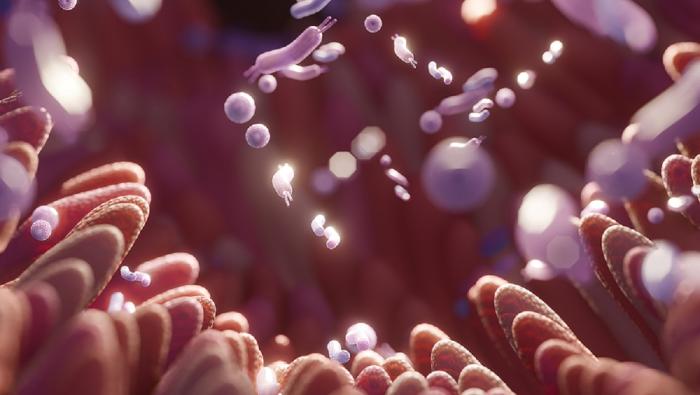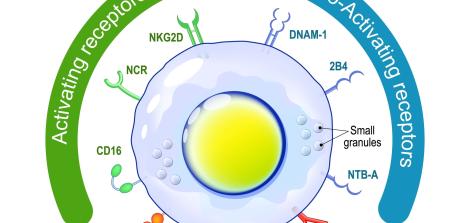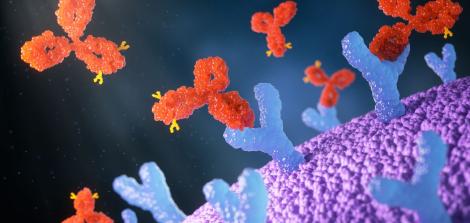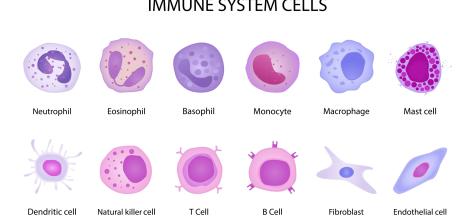Antibiotic Treatment in Infants Impairs Child Growth

Newborn infants are highly susceptible to invasive bacterial infections, and suspected infection is one of the main reasons for admission to a neonatal unit. As a result, a considerable number of neonates are treated with antibiotics during the first days of life. A new comprehensive study led by Professor Omry Koren from the Azrieli Faculty of Medicine at Bar-Ilan University sheds light on the long-term impact of antibiotic treatment on their gut microbiome, and consequently – on their growth.
The impact of Antibiotics on Gut Microbiota
Microbiota is an ecological population of bacteria, viruses, and single-cell organisms that develop inside the living body, mostly in the digestive system, and interact with the body through a symbiotic process. Infants’ exposure to antibiotic treatment substantially changes their gut microbiota during the first weeks of life and also has other long-term effects that scientists have only begun to understand in recent years.
This study was published in the scientific journal Nature Communications and was conducted collaboratively by Bar-Ilan University in Israel, Turku University in Finland, and the Federal Research Institute of Nutrition and Food in Karlsruhe, Germany. Its results show that male infants’ exposure to antibiotic treatments during the first days of their lives impairs their growth until the age of 6. The reason for this, as demonstrated by the investigators, is impaired microbiota development in the gut. Furthermore, the investigators have also demonstrated that antibiotic administration at a later age in childhood is associated with a significant increase in body mass index (BMI) in both girls and boys.
In order to prove the causal link between antibiotic exposure, changes to gut bacterial populations, and infants’ health, this study was conducted on three levels:
- Monitoring the growth of infants who received antibiotic treatment: Two cohort studies were conducted: The first took place in Finland and examined growth parameters in a group of over 12,000 infants, from age 0 to 6, some of whom received antibiotic treatment during the first 14 days of life; the second cohort study was conducted in Germany and monitored growth parameters in 1,707 children from the gestational period until the age of 5.
- The impact of antibiotic treatment on gut microbiota in infants: A study that examined the development of gut microbiota in 13 infants who received antibiotic treatments during the first 48 hours of life, and in 20 infants who did not receive any antibiotic treatment and served as a control group.
- Establishing the causal link in a mice trial: A trial that involved fecal transplantation in lab mice to establish the causal link between antibiotic exposure, impaired microbiota development in the digestive system, and delayed growth.
The first level: Proving that early-childhood antibiotic exposure impairs growth
In Finland, the investigators examined the long-term implications of antibiotic treatment in 12,422 children, who were all born at the Turku University Hospital in Turku, Finland, between 2008 and 2010. Of that group, 1,151 children (9.3%) received antibiotic treatment during the first 14 days of life. The study shows that boys (and not girls) who were exposed to antibiotics recorded reduced growth gain - as reflected in height, weight, and body-mass index (BMI) parameters according to standard growth charts, compared to children who were not exposed to antibiotics.
In order to corroborate the findings, the investigators examined growth parameters in another large group of 1,707 infants in Germany, from the period of gestation and until the age of 5. Of that group, 6.4% received antibiotic treatment during the first days of life. The results here were similar - the investigators discovered that boys (but not girls) who were exposed to antibiotics in early childhood recorded significantly reduced height and weight parameters compared to infants who did not receive antibiotics.
The second level: Proving that antibiotic administration to neonates causes long-term gut microbiome perturbation
After establishing the link between antibiotic administration during the first days of life and delayed growth, the investigators sought to examine if the reason for that was impaired gut microbiota development caused by antibiotic treatment at an early and crucial stage in neonate development, and the consequential gut microbiota alterations.
The impact of antibiotic treatment on gut microbiota was investigated in a group of 13 infants who were exposed to antibiotic treatment during the first 48 hours of life, and in a group of another 24 infants who were not exposed to antibiotics and served as a control group. In order to reduce as much as possible the confounders that could have affected the results, the investigators verified that all known aspects - duration of gestation, birthweight, mode of birth, antibiotic exposure during delivery and during the first six months of life, and breastfeeding until 1 month of age - were identical in the investigated groups of infants.
Fecal samples were taken from the infants at the age of 1 month, six months, one year, and two years. Fecal microbiome was analyzed by means of 16S rRNA gene sequencing and a subset of samples underwent metagenomic analysis. The data analysis showed that antibiotic exposure causes significant long-term alterations in the gut microbiota. The analysis comparing bacterial diversity across samples showed that from the age of 1 month through the age of two years the gut microbiome changes rapidly and reaches maturation, but infants who were exposed to antibiotics demonstrated a different and more random pattern of bacterial establishment.
The third level: Establishing the causal link through fecal transplantation in mice
The investigators also conducted an investigational trial in which feces from children exposed to antibiotics in early childhood was transplanted to germ-free mice. The purpose of this stage of the study was to prove the causal link between impaired growth and altered gut microbiome development following antibiotic treatment. The trial results were similar here as well, and established the causal link: Male (not female) mice into which feces from infants who were exposed to antibiotics was transplanted also recorded a substantial reduction in growth indexes.
Antibiotic treatment in infants: Additional findings
Another topic that was investigated was related to findings from previous studies that pointed to a connection between antibiotic exposure in childhood and a predisposition to obesity and being overweight.
Processing the data from the study in Finland revealed that this connection occurs when the antibiotic treatment is given in the period between early childhood (except for the first weeks in life) and the age of 6. This analysis showed that both boys and girls who received antibiotics at these ages had much higher weight percentiles compared to children who did not receive antibiotics, but when it came to height indexes, it seemed antibiotic exposure had no impact.
We already know that antibiotic administration requires discretion, given the potential development of bacterial resistance, but the current study teaches us that we should also consider the harm to other bacteria in the human body and the potential long-term impact this may have. We understand that even though antibiotics save lives, it is possible that in the future, after we use antibiotics, we will use personalized probiotics made from bacteria strains that became extinct because of antibiotic use.
Last Updated Date : 13/03/2023








